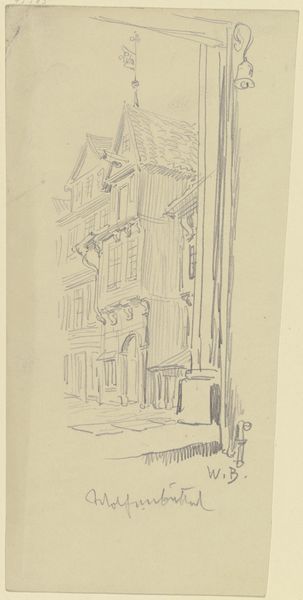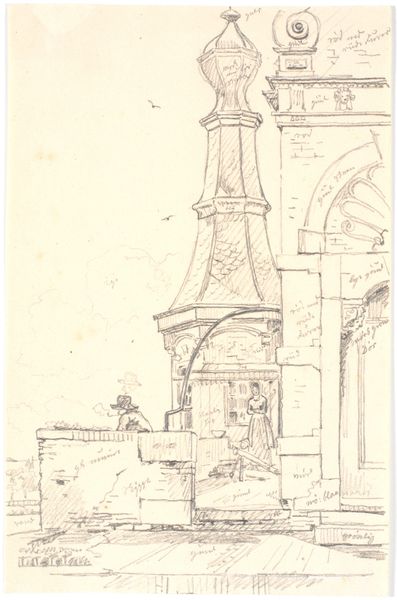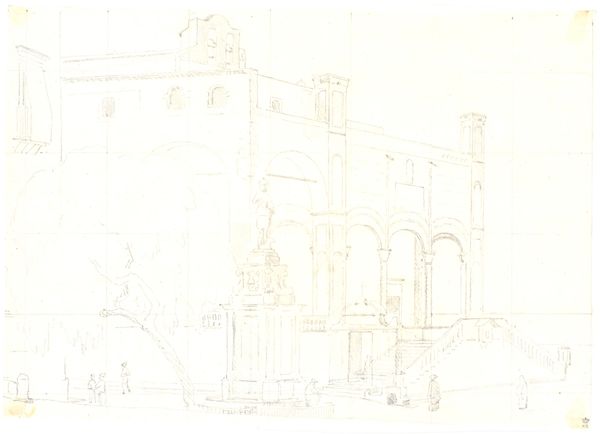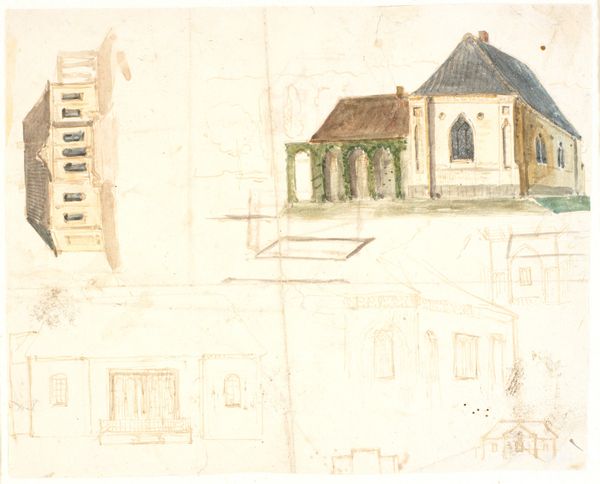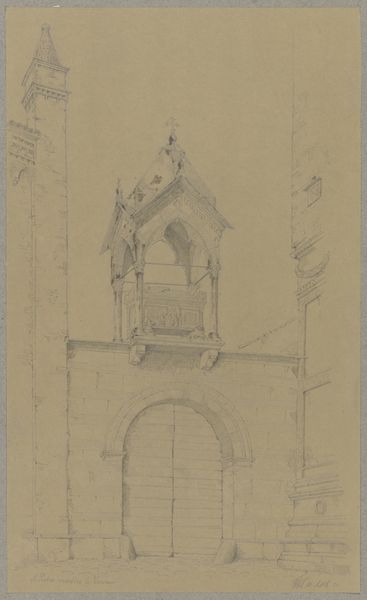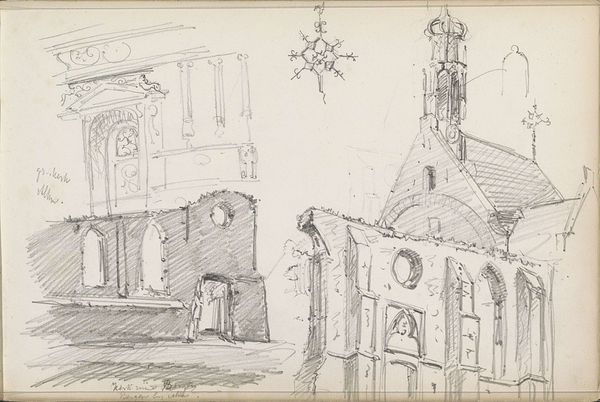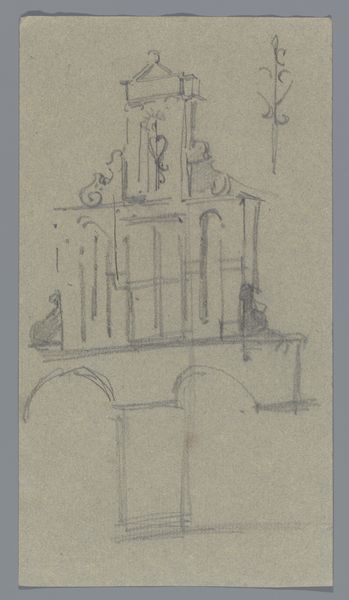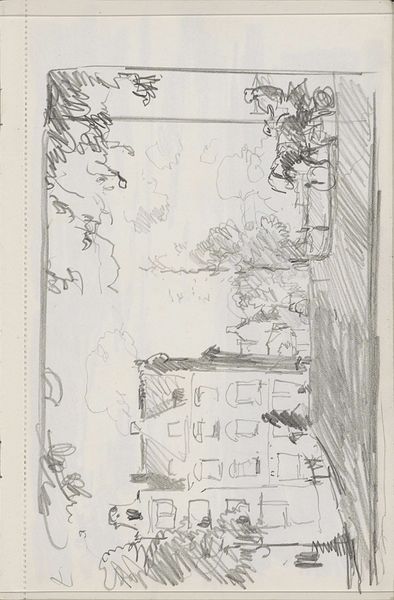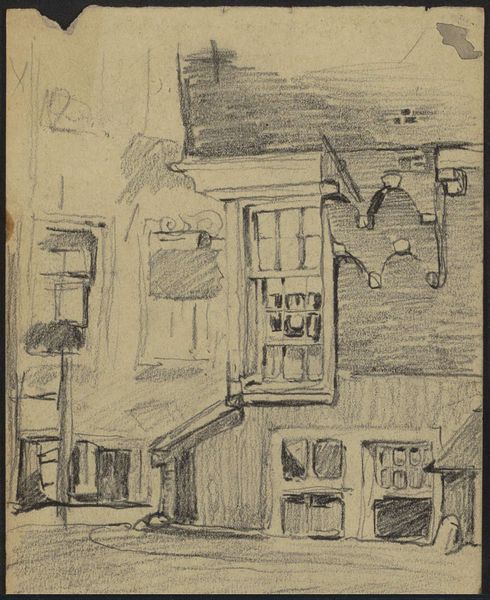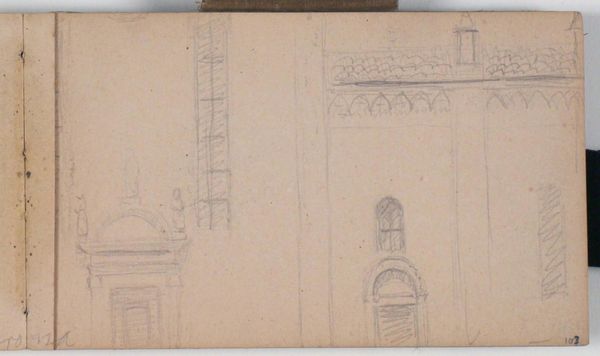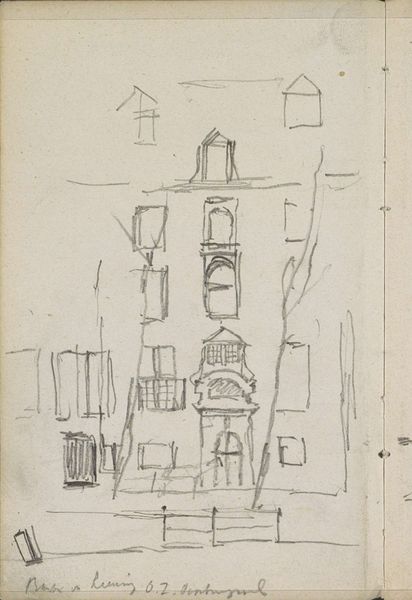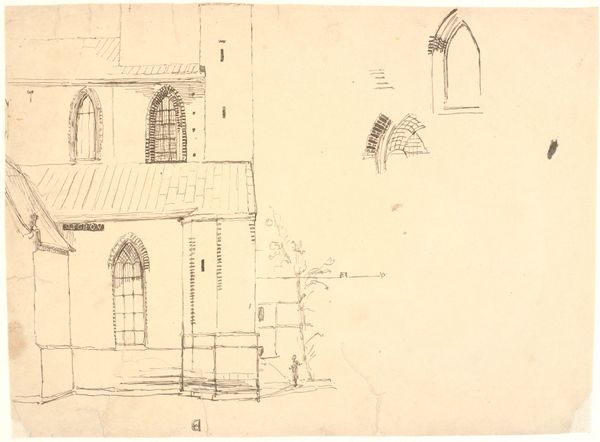
drawing, paper, pen, architecture
#
architectural sketch
#
drawing
#
map drawing
#
mechanical pen drawing
#
sketch book
#
etching
#
paper
#
sketchwork
#
geometric
#
romanticism
#
architectural drawing
#
pen work
#
architecture drawing
#
pen
#
storyboard and sketchbook work
#
academic-art
#
architecture
Dimensions: 210 mm (height) x 170 mm (width) (bladmaal)
Editor: Here we have Dankvart Dreyer's "Arkitektur- og dekorationsstudier i nygotisk stil," or "Architectural and Decorative Studies in the Neo-Gothic Style," dating back to the 1840s. It’s a pen and ink drawing on paper. The drawing has this intriguing sense of floating architectural fragments. How do you read this composition? Curator: What strikes me is the interplay between the detailed articulation of Neo-Gothic elements and their seemingly arbitrary arrangement on the page. The very materiality of the line, its quality and variation, delineates space and form, suggesting depth while simultaneously flattening the image. Note the repetition of rectangular forms and pointed arches. How do they contribute to the overall structure? Editor: I guess the repetition creates a rhythm, a visual echo throughout the sketch. Is that part of the academic approach? Curator: Precisely. The composition’s rhythm structures a visual logic. Also consider the medium. Pen and ink allows for fine detail and precise linework. It privileges draughtsmanship and linear perspective, underscoring the rational, even as the overall arrangement hints at something more fantastical, not really representational. Editor: So it’s almost like a deconstruction of architectural elements? The pen renders the details, but their arrangement defies conventional architectural logic? Curator: Yes, challenging a conventional view of Romanticism. We are prompted to investigate the construction of form, both literally and representationally, focusing attention to the relationship between parts and the sum, or the whole. Editor: That’s a fresh view. The way you see the structure guiding the expression offers something new. Thanks! Curator: The precision coupled with fragmented reality reframes the language of art making, focusing on the grammar to construct the poem, as opposed to relaying it. An enriching experience to focus our awareness in this way.
Comments
No comments
Be the first to comment and join the conversation on the ultimate creative platform.
